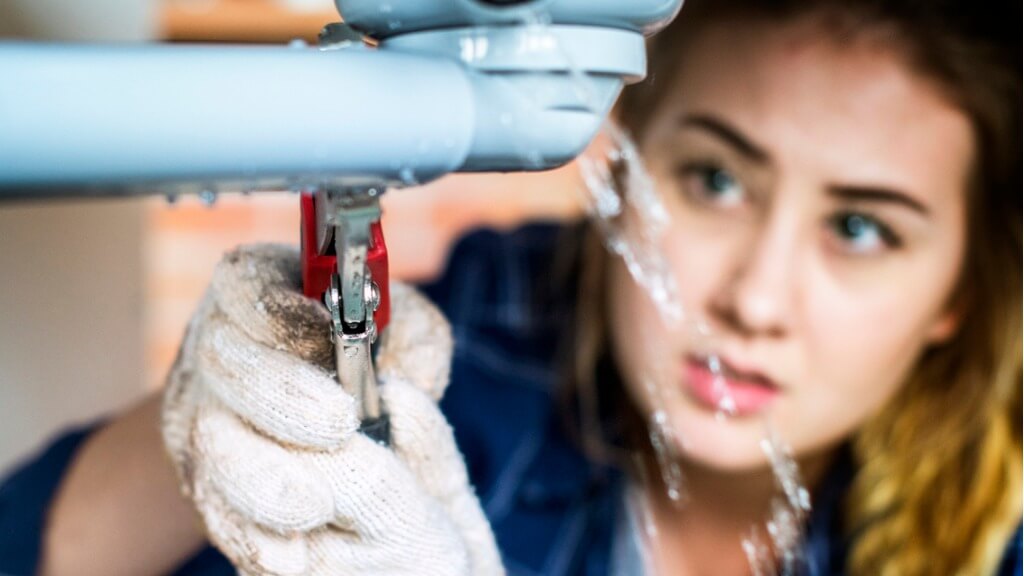Why Women Plumbers Make Me Uncomfortable
Should female tradespeople get comfortable with being uncomfortable?

At the end of my last year at primary school, I was awarded the Courtesy Cup. It was handed out at the end of every school year to the pupil who had shown consistent kindness and excellent behaviour, i.e. had never disrupted lessons or been a nuisance to the teachers.
I remember that, despite my shyness, I felt very proud of myself and, if I’m honest, it’s always been one of my favourite memories from that time.
Well, it was a favourite memory. When I think about the Courtesy Cup today as a 31 year old woman, pride is not what I feel. I feel uncomfortable and perhaps even a little angry. Let me explain why.
Women Installers Together
As a writer for Boiler Guide, I was invited to attend the annual Women Installers Together (WIT) conference in central London on 4th July.
The event is run Stopcocks Women Plumbers as an opportunity for female plumbers and heating engineers from all over the UK to expand their professional network, celebrate their achievements and provoke debate about what is preventing more girls and women from entering the industry. I was attending from a journalistic perspective, but I came away with a lot more.
While it's clear that within many industries gender bias still exists with females often left at a disadvantage when it comes to progression opportunities and remuneration, the trade and STEM industries are some of the most imbalanced.
For example, of the 100,000 UK Gas Safe registered heating engineers less than 500 of these are female. For those women that are fully qualified and established, they still face the adversity and stigma of being a woman in a typically male-dominated field.
Challenging unconscious gender bias
The founder of Stopcocks, Hattie Hasan, opened with an introduction to the ‘theme’ of the event: How do we challenge gender bias?
The WIT conference was focused on gender bias in the plumbing and heating industry, but the issues are relevant in any workplace when we make unconscious assumptions about someone’s capabilities based on nothing more than their gender.
To summarise, we are all biased. Our brain has to process so much information that it creates shortcuts to simplify the world.
These shortcuts are what lead to stereotypes and assumptions about the people we meet based on their gender, race, religion, sexuality or other identifying factor. While our biases are a natural survival instinct to an extent, we are in control of how we choose to react to them.
Generations of men holding positions of power has led to a social expectation that it is natural for men to lead and to be assertive while women are expected to be kind, supportive and compliant.
Therefore, when a woman is assertive it feels unnatural to us and we tend to like her less, calling her bossy or aggressive for displaying traditionally ‘male’ leadership qualities.
On the flip side, when a woman does fit the expected criteria, she is viewed as less competent as a result, which will also have a detrimental effect on her career prospects.
We underestimate women’s performance and overestimate men’s performance, which is why women feel they have to achieve more to be valued as equals to men. Women need to prove their skills and experience while it is enough for a man to have potential.
Women are generally viewed as less competent which means we are more likely to blame them for mistakes and less likely to commend them for success. Women are also more likely to be interrupted when speaking (by men and other women) as their contributions are seen as less valuable.
When women are held to higher standards, receive less credit, are blamed more often and their contributions are devalued, their confidence drops and they are less likely to strive for promotion or apply for jobs.
Women Plumbers vs. Gender Bias
I then had the opportunity to meet many of the women installers. We talked at length about their impressions of the industry and their experiences of gender bias. These quotes are just some of the ways these women have managed gender bias in their careers.
· “After qualifying I started out looking for jobs, but because I’m older and female almost every person I spoke to said, “Oh, what are you doing plumbing for?” So I decided to do it on my own.”
· “I haven’t had any negative experiences in terms of sexism of bias, but that might be because I stand my ground.
I’m too confident in my abilities and my knowledge and I don’t think I even give customers the opportunity to doubt me.”
· “I think the best way to challenge gender bias is to approach it head on.
If you get into conversation with your customer or another engineer and actually find out what their views are, you can make them think about it. Talking about it naturally, positively and confidently before you join a company or start work on a job can help to remove any awkwardness.”
· “I was working on an extension in a home as the plumber.
When the builders came in they looked at me like they’d seen a ghost and said, “Who are you?” I said, ‘I’m Laura, I’m the plumber’, and he said, ‘I thought you were the babysitter’. After that, he was very overbearing and kept suggesting how I should be doing my job. I refused to return to the job if that individual was still there.”
While all had experienced it to some degree, the resistance they have met seems to have fueled their ambition. Although they were aware of the ‘novelty’ of being a woman plumber, far more interested in talking about taps, tools, qualifications and invoices.
How can we challenge gender bias in the workplace?
The passion and enthusiasm I found in the women who are refusing to let gender bias stop them from pursuing their career of choice was inspiring to say the least.
The conference was not about dwelling in negativity or placing blame but adding their voices to a conversation which is relevant for any sector or business struggling with gender imbalance, and I learnt a lot from their stories.
Set yourself a goal. Be honest with yourself about what you want to achieve despite the internal doubts, excuses and self-criticism you’re so used to.
Be bold. Far too often women hesitate to speak up or even to finish their sentences because we expect to be interrupted. Hold your posture, speak clearly and at your own pace.
Be proud. Don’t be ashamed of your achievements and champion the success of other women whenever you can.
Speak up. If you see biases playing out in others, speak up and start a positive conversation about it to help others recognise their own biases.
The women installers are incredible examples of women who either don’t feel or are overcoming false limits imposed by gender.
So, why am I angry?
When I left primary school, I did not know that I was above my peers in terms of my abilities in English, that I had an unusual talent for storytelling or that I had pushed myself to achieve more than was expected of me in maths thanks to my determination.
What mattered most to me, my teachers and my parents was that I was a ‘good girl’ who didn’t cause any problems. This is what I have been striving to be seen as in both my career and personal life ever since. In many ways I am still a shy, 11-year-old girl.
Fired up as I am, I know that writing about it is not the answer. As professional women in a changing society we need to push ourselves past the external limits which have been placed on us, but which we believe to be within ourselves.
We need to be comfortable with the uncomfortable, use our voices, stand our ground and show our value. Like it or not, we are role models and leaders for future generations of both men and women.
Hayley Mackenzie from Boiler Guide.
Thanks for signing up to Minutehack alerts.
Brilliant editorials heading your way soon.
Okay, Thanks!